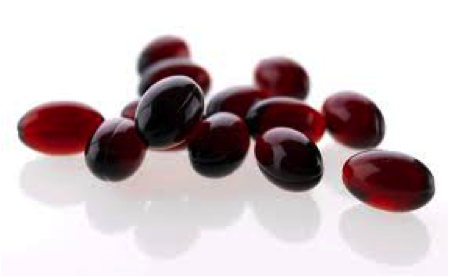- Home
- Our story
- Nutrition Quickies
- Products
- Ingredients
- Articles
- Success Stories
- Contact Us
- Timeless Radiance
- JayLab Pro Prosta-7
- BloodFlow Guardian
- VG-6
- Ultimate Sleep Solution
- Fermented Turmeric
- Collagen Complex
- LeptiSense
- Ultra-Cleanse Detox
- Krill oil
- Probiotics
- Advanced Joint Support
- Gluco Guardian
- Multi-vitamin (Active Core Complex)
- Renewal for men (T20)
- Protein powder
- Combo-packs
- Login
The One-Step Process That Could Lower Your Cholesterol and Improve Heart Health
 We are faced with a VERY BIG problem.
We are faced with a VERY BIG problem.
And it has to do with the types of food that you may eat.
Not just any food, however, but the type of fatty acids that you may be ingesting.
You may not realize it, but you may be ingesting the WRONG ratio of fatty acids.
In fact, MOST PEOPLE may be lacking the right ratio for optimal health.
Let me explain…
Omega-3 vs. Omega-6 Fatty Acids
Western diets may include a high majority of omega-6 fatty acids, and less of the more important fat, Omega-3s.
Omega-6 fatty acids may increase inflammation in your body.
And this inflammation may lead to numerous health conditions, including heart disease, diabetes, and metabolic syndrome.
To offset the ratio, ingesting more OMEGA-3 FATTY ACIDS, may possibly decrease your risk factors.
Omega-3 fatty acids are ESSENTIAL fatty acids, meaning your body is unable to produce them it must get them from your diet.
Omega-3 fatty acids may help maintain the health of the cell membranes and the regulation of certain hormones.
Now how do omega-3s prevent inflammation and heart disease?
The exact mechanism is not fully understood, but it may help that omega-3’s have the ability to produce anti-inflammatory properties in your cells.
Omega-6 fatty acids may increase inflammation, due to the production
of pro-inflammatory compounds
Now here is where it gets interesting…
Baby Steps To Heart Disease
A diet rich in fat may increase bad cholesterol, or your LDLs.
A high fat diet may also lower your HDL cholesterol.
The LDLs and its relative strand VLDLs, may be enemies to your body.
Increased LDL levels may increase its breakdown.
What happens, though, may make you wonder what is going on INSIDE your body.
LDLs are processed by oxidation.
And this oxidation may release tiny LDL particles into your blood.
And these particles may penetrate your endothelium.
 Before this step though, LDL cholesterol is processed through lipid peroxidation.
Before this step though, LDL cholesterol is processed through lipid peroxidation.
This breaks down LDL cholesterol into tiny particles and short-chain aldehydes.
At the very same time this is happening, there is another process converting Lecithin into lysolecithin.
Lysolecithin is a chemotactic agent for monocytes.
This means lysolecithin moves in the direction of the monocytes.
And this movement and binding creates macrophages.
And macrophages like to ingest oxidized LDLs.
But when it gets full, the macrophages undergo a change.
And this change may be DEADLY to your arteries.
Macrophages change into a foam cell.
And that foam cell may create a fatty streak on your artery wall.
Some consider this process the first step in the development of heart disease.
You may wonder what you can do about it.
And there is a savior, so to speak….
Krill Oil vs. Fish Oil
For years, people may have recommended fish oil to you as a way to improve your heart health.
And for good reason!
Many different studies may be cited for potential benefits that fish oil has in your body.
But there may be an EVEN BETTER alternative to fish oil.
And it may just be 47 TIMES more EFFECTIVE than regular fish oil.
Let me explain…
Krill oil and fish oil both contain EPA and DHA, which are potent omega-3 fatty acids.
Both DHA and EPA may compete with omega-6 fatty acids.
And omega-3 fatty acids may increase ANTI-INFLAMMATORY compounds.
But there is quite a difference between Krill oil and Fish oil.
The omega-3 fatty acids found in Krill oil are attached to a phospholipid backbone (and not a triglyceride backbone like fish oil), which may interact better with your cell membrane.
This may increase the likelihood of getting more DHA and EPA, possibly reducing your risk factors.
The reason: a phospholipid backbone may speed up the passage of DHA and EPA through your intestinal wall.
Increased absorption may enable more omega-3 fatty acids
to be available, altering your ratio for the BETTER
Being bound by a phospholipid may also increase omega-3 fatty acid concentration in your brain and your liver.
And this may benefit brain health and lower triglycerides in your liver.
Krill oil also contains naturally occurring ANTIOXIDANTS which may be beneficial to your body.
Krill contains high levels of Vitamin E, A, and Astaxanthin.
This may increase the power of Krill oil because powerful antioxidants NATURALLY occur in Krill Oil.
Antioxidants are able to scavenge free radicals, possibly destroying them FOREVER.
Free radicals may increase inflammation by causing damage
to your cells and endothelium
Krill oil may also be MORE EFFECTIVE at lowering blood lipids and triglycerides, which may increase your risk for cardiovascular disease.
The Research
 Researchers aimed to see which was more beneficial: Krill oil or Fish Oil.
Researchers aimed to see which was more beneficial: Krill oil or Fish Oil.
And their results might SURPRISE you!
For 12 weeks, 120 participants were subjected to either fish oil or krill oil supplementation.
The participants were between the ages of 25 and 75, and were a mix of women and men.
All participants had either normal blood chemistry, slightly high, or very high blood lipid profiles.
They were separated into 4 different groups.
• One group ingested 2-3 grams of krill oil daily
• One group consumed 1-1.5 grams daily
• One was a fish oil group
• One was a placebo
The group that received 1-1.5 grams of Krill daily, showed a 13.4% and a 13.7% decrease in total cholesterol, respectively.
The 2-3 grams of Krill daily showed even better results!
They showed an 18.1% and 19% DECREASE in total cholesterol.
Comparatively, the fish oil group only decreased their total cholesterol by 5.9%.
The placebo showed an INCREASE in total cholesterol.
But you are not done yet!
ALL Krill oil groups significantly DECREASED LDL cholesterol (32, 36, 37, and 39%) compared to the fish oil group which reduced LDL by ONLY 3.9%.
Lower LDL cholesterol may mean less LDL cholesterol for your body
to oxidize
To Sum It Up
Heart disease still ranks as the number one killer for men and women in the US and worldwide.
An estimated 59.7 million Americans have some form of cardiovascular disease.
This may increase your risk of having a heart attack or stroke later in life.
Some risk factors cannot be changed.
However, one risk factor CAN and SHOULD be changed.
That is increasing omega-3 fatty acids in your diet.
Omega-3 fatty acids may alter your omega-6 to omega-3 ratio, which may reduce your risk for heart disease.
Krill oil is a potent form of omega-3 fatty acids and may be more BENEFICIAL to your health than regular fish oil.
Due to the makeup of Krill oil, you may have better availability to omega-3 fatty acids.
This may lead to reductions in blood cholesterol, specifically LDL cholesterol.
LDL and VLDLs may be more damaging to your body.
Not only does Krill contain high quality omega-3 fatty acids, but it also contains high levels of antioxidants.
And these antioxidants may reduce damage caused by free radicals, which may possibly reduce inflammation.
Omega Icon contains omega-3 rich Krill oil which may be a better alternative to fish oil.
References:
Werner, A. Havinga, R. Kuipers, F. Verkade, H. Treatment of EFA Deficiency with dietary triglycerides or phospholipids in a murine model of extrahepatic cholestasis. AJP- CI. 2004. Vol. 286(5):pp. G822-G832.
Bunca, R. Farrah, K. Deutsch, L. Evaluation of the Effects of Neptune Krill Oil on the Clinical Course of Hyperlipidemia. Alternative Medicine Review. 2004. Vol. 9(4):pp. 420-429.



